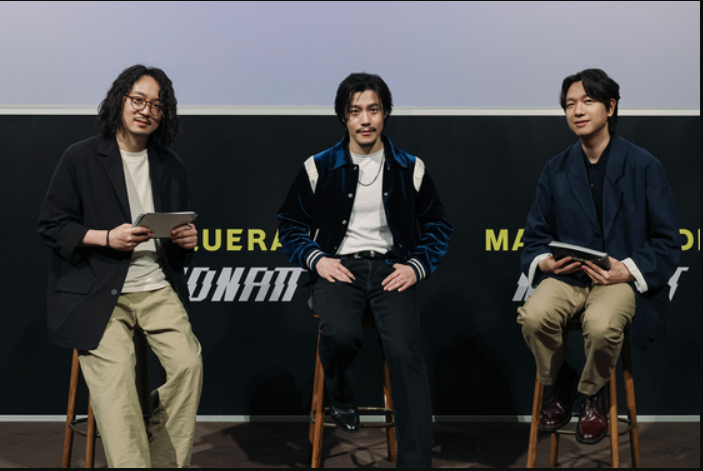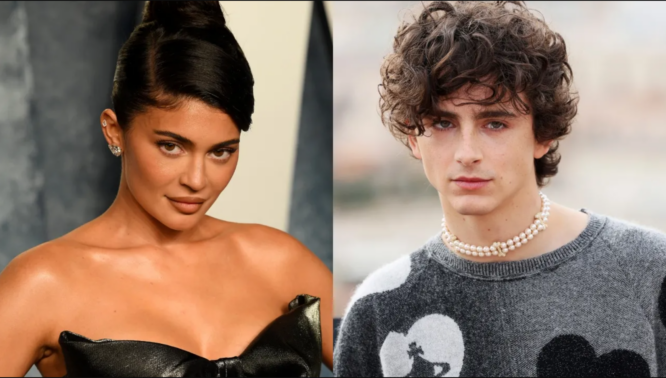AI technology has changed K-pop by transcending gender and language barriers.
AI has been giving performers new avatars and even becoming a virtual fame. Midnatt just released “Masquerade,” a song with AI assistance.
On March 15, 8eight member Lee Hyun released the song under the stage name Midnatt. AI will help him shed his 17-year-old soft image.
“My desire for a change in musical style took precedence over using AI,” Lee stated in a press conference on May 15 to explain why he used AI in his music.
“Masquerade,” a rhythmic synthwave song, was developed utilizing new AI technology from Supertone, an AI startup HYBE bought earlier this year. No vocalist was needed for the feminine portion. AI transformed Lee’s voice into a woman’s while keeping his gruff singing style.
“We created the optimal female vocal for the song, based on Midnatt’s [original] voice,” stated HYBE CEO Jung Woo-young.
“AI allows the audience to hear that part in a real-time female voice during a live performance.”
Lee released “Masquerade” in six languages at once using AI to fix pronunciation in Korean, English, Spanish, Japanese, Chinese, and Vietnamese. Lee sang each foreign language rendition of “Masquerade” after a native speaker of each language recorded the words to the beat.

The singer’s voice was preserved while adding native speaker clarity and accentuation for the first time.
Virtual celebrities created by AI have also impacted K-pop.
BigHit Music CEO Shin Young-jae claimed, “K-Pop will transcend language.”
Half the world’s eight billion people speak Korean, English, Spanish, Japanese, Chinese, and Vietnamese.
“HYBE is also considering applying AI audio technology to artists of other agencies,” Shin stated.
“If you have a voice sample, you can easily recreate any song with that particular voice,” Supertone CEO Lee Kyo-gu remarked at a conference on AI and K-pop last month.
“If we wanted to, we could take a singer’s voice and create songs that just sing tens of thousands of fans’ names in the singer’s voice,” Lee said.
The female group aespa’s virtual assistant, Naevis (naevis), is an AI-generated character with a distinctive voice and appearance.
Naevis appeared in the beginning and chorus of aespa’s third EP’s “Welcome to MY World” on May 8, expanding her character’s talents. Naevis’ voice was a mix of numerous voice performers.
SM Entertainment is planning Naevis’s solo debut.

Songwriting and composition use AI.
Genie Music, a Korean music streaming service, using Juice technology to re-create singer Tei’s famous song “Same Pillow” (2022) for the drama “Hyunamdong Bookstore.”
Juice’s AI analyzes the original music, recognizes note and melody lengths, and converts it into a digital score to create a new song.
Pozalabs, an AI musical composition business, wants to offer a service this year that lets customers enter a song they like and receive a comparable AI-generated tune in five to 10 minutes. Non-professional AI music is also getting interest. Cover songs are the most common since AIs can learn performers’ voices to create covers.
In May, Bruno Mars’ version of NewJeans’ “Hype Boy” (2022) on YouTube garnered over a million views. However, an AI created the cover.
Fifty Fifty’s “Cupid” and Zion T’s “Yanghwa Bridge” were covered. AI-generated covers are still made and shared online.
AI-generated music worries some.
Drake and The Weeknd’s new single, “Heart on My Sleeve,” was a TikTok user’s AI-created song that was subsequently pulled down.
“There are obvious advantages of AI music in terms of widespread enjoyment of music, but it’s scary when listeners are unaware that it’s AI-generated,” pop music critic Park Joon-woo remarked.
AI music worries stem from Drake and The Weeknd’s position. Experts predict copyright concerns, listeners mistaking AI music for actual musicians, and abuse of vocalists’ individual voices.
“With an explosive amount of content on YouTube and other social media platforms, there are limitations to protecting the rights of artists and copyright holders, especially if we were to look through every single one manually,” said Choi Bo-na, general manager of music monitoring company Soundmouse Korea.
“We first incorporated AI into music five or six years ago to provide artists with information on where and how much their soundtracks have been used,” Choi added. “Increasing AI technology does not alleviate copyright concerns. Awareness must accompany policy. “While legal action is taken, industry awareness must be raised, which will take time,” Choi said.





